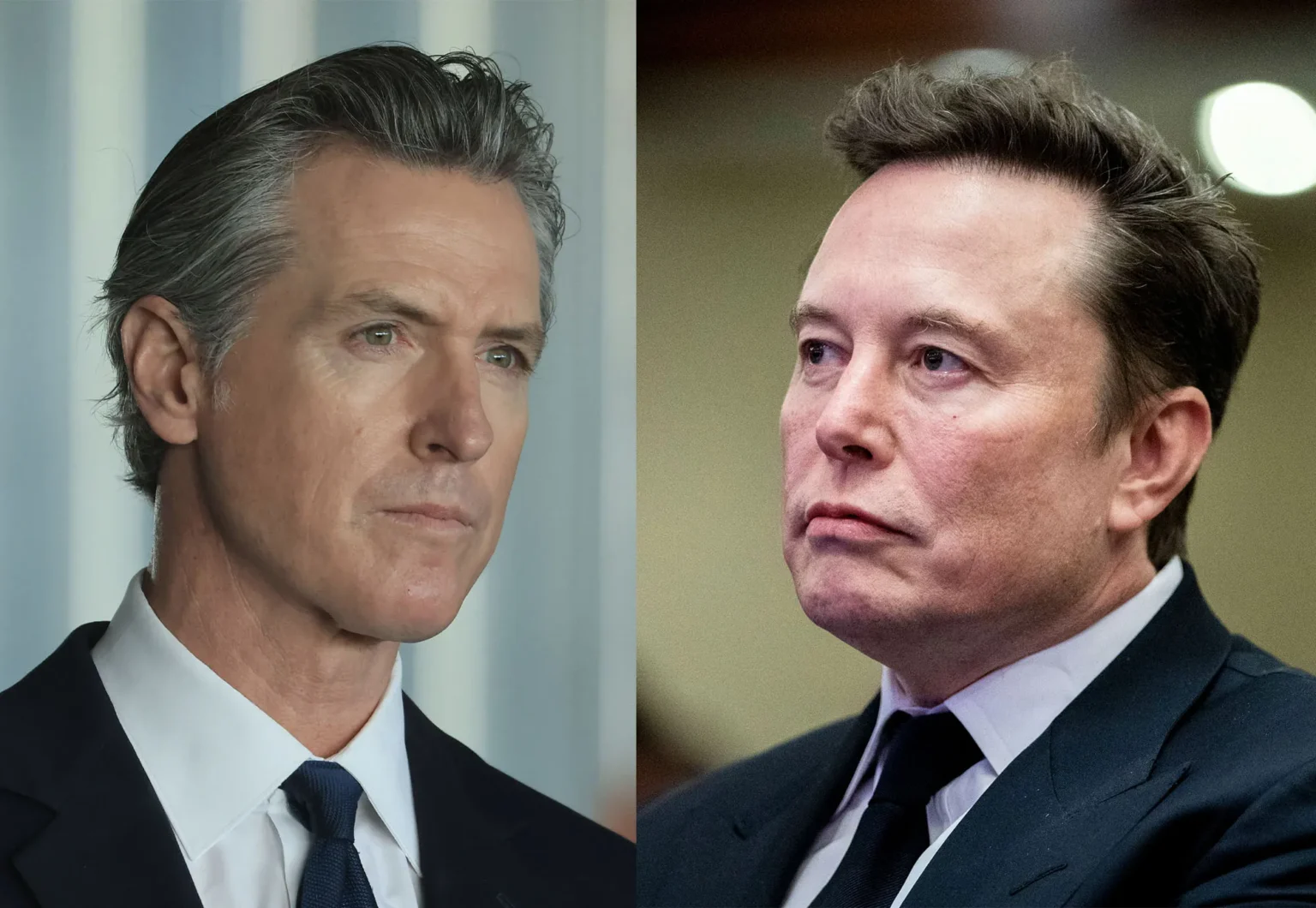California Governor Gavin Newsom has fiercely criticized tech billionaire Elon Musk for spreading “falsehoods” regarding the state’s handling of the deadly wildfires ravaging Los Angeles. The online dispute between Newsom and Musk has escalated amid growing concerns about the spread of misinformation surrounding the fires, which have claimed at least 24 lives and displaced thousands of residents.
Musk, the CEO of Tesla and SpaceX, has joined forces with President-elect Donald Trump in criticizing Newsom’s response to the devastating blazes. In a recent post on Musk’s social media platform, X (formerly known as Twitter), Musk blamed the widespread destruction of homes on “bad governance” at both the state and local levels, suggesting that the fires were exacerbated by a shortage of water.
In a direct rebuttal, Newsom shared a video on X showing a firefighter clarifying Musk’s claim. The firefighter confirmed that there were plenty of water resources available in the state’s reservoirs, and that fire crews had been using water trucks to supplement efforts to battle the large-scale fires. Newsom’s post accused Musk of spreading lies, calling out the billionaire’s misinformation as “exposed by firefighters.”
The conflict continued over the weekend as Newsom took issue with another post from Musk. The tech mogul amplified a false claim that Newsom and his fellow Democrats had “decriminalized looting.” The post fueled growing fears of looting in areas where residents were forced to evacuate due to the fires. Newsom responded firmly, asserting that looting was and always has been illegal, and assured the public that those responsible would be arrested and prosecuted.
Musk’s social media presence, with over 212 million followers, has made his posts highly influential, but also controversial. Researchers have noted a rise in right-wing misinformation on the platform, especially surrounding the California wildfires. One particularly harmful narrative pushed by Musk minimized the role of climate change in the fires and blamed the Los Angeles Fire Department’s diversity, equity, and inclusion (DEI) policies for the destruction.
In a post over the weekend, Musk provocatively claimed that DEI policies were directly linked to the fires, stating that “DEI means people will DIE.” This comment drew swift backlash from critics who accused Musk of politicizing a natural disaster. One viral video, which was shared on the platform, claimed that fire department officials were using women’s handbags to fight the flames, alleging that the resources were diverted to “woke causes” and war aid for Ukraine. The video was quickly debunked by officials, who clarified that the bags in question were canvas pouches used by firefighters for managing smaller flames, not handbags.
The wildfire misinformation didn’t end there. Musk also endorsed a baseless claim from conspiracy theorist Alex Jones, who suggested that the fires were part of a “globalist plot” to destroy the U.S. economy. Musk’s endorsement of Jones’ theories further fueled the spread of conspiracy-driven narratives.
Meanwhile, misinformation about the wildfires spread across other platforms, including Facebook. Authorities were forced to debunk a false Facebook post that urged people to travel to California to join a cleanup crew in fire-affected areas. The California fire protection department clarified that there was no such opportunity available, warning the public about the misleading information.
Meta, Facebook’s parent company, recently faced significant backlash after announcing the removal of third-party fact-checking in the U.S., opting for a crowd-sourced moderation approach instead. Disinformation researchers have raised alarms, suggesting that this policy change, implemented just weeks before Trump’s inauguration, could open the floodgates for more misinformation to thrive on the platform.
As the wildfires continue to devastate large parts of California, Newsom and Musk’s public feud highlights a larger issue: the role of social media in shaping public perception during crises. With misinformation on the rise, both Newsom’s and Musk’s statements have sparked debates about accountability and the need for truth in the face of disaster. As the state continues its recovery efforts, the battle over the narrative surrounding the fires seems far from over.




